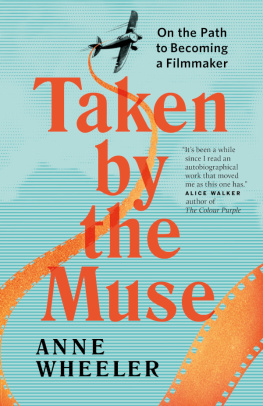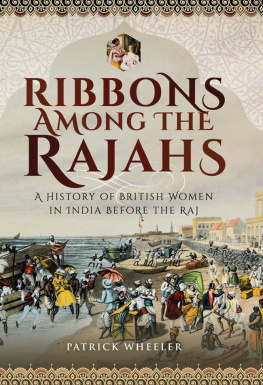Foreword
In this, the last of a trio of volumes dealing with three great contemporary men of action, I have attempted to tell the story, in its main lines, of the crowded life of Wellington. The narrative provides as substantial a view of Wellington as is possible within the limits of my space, but I hope that readers of my book will be so interested that they will go on to the perusal of its companions, for the careers of Napoleon, Nelson, and Wellington should be studied together. They are the three sides of a triangle of which Napoleon is the base.
The Dukes career, when compared to the others, is a plain, unvarnished tale, not altogether devoid of romance, certainly not of adventure, but lacking in many of the qualities which have endeared less notable men. It would be obviously untrue to state that Wellington lacked humanity, but he was certainly deficient in that attractive personal magnetism so evident in Nelson. Speaking broadly, he did not repose that confidence in his subordinates which was one of the great sea-captains most marked characteristics, and he often said hard things of the men under him. Nelson is the darling Hero of England; Wellington will always be known as the Iron Duke. If it ever became the fashion to canonize military and naval men, Nelsons nimbus would be of rosemary, Wellingtons of steel. The mob never broke the windows of Merton Place, but it shattered every exposed pane in Apsley House. The incident arose from his conscientious opposition to reform, and occurred in 1831, sixteen years after the battle of Waterloo. A little over a decade later, an immense mob cheered him as he proceeded up Constitution Hill. His acknowledgment was to point to the iron shutters of his house when he reached Hyde Park Corner. They had been put up after the bombardment by brickbats, and were never taken down during his lifetime.
In a way, Wellington is the typical John Bull of our fancy. He gloried in an open-air life, he enjoyed sport, he was a man wedded to duty, stern and uncompromising once his mind was made up. We love to imagine that the average Briton displays the same characteristics, although we know at heart that he does not do so, and that the secret of our material success as a nation is our extraordinary power of absorption, of setting our sail to every passing breeze, of compromising provided we get the best of the bargain.
This is how the Duke appeared to a foreigner, the Duchesse de Dino, Talleyrands niece: He has a very exact memory, and never quotes incorrectly. He forgets nothing, and exaggerates nothing, and if his conversation is a little dry and military, it attracts by its fairness and perfect propriety. His tone is excellent, and no woman has ever to be on her guard against the turn that the conversation may take. In later years Wellingtons memory failed somewhat. He was invariably precise, always a soldier, and never given to what is generally known as small talk. In a word, he commanded.
A more intimate and less familiar view of Wellington is afforded us in the diary of Benjamin Robert Haydon, who painted the Dukes portrait at Walmer Castle in the autumn of 1839. During breakfast, he tells us, six dear, healthy, noisy children were brought to the windows. Let them in, said the Duke, and in they came, and rushed over to him, saying, How dye do, Duke? How dye do, Duke? One boy, young Grey, roared, I want some tea, Duke! You shall have it if you promise not to slop it over me, as you did yesterday. Toast and tea were then in demand. Three got on one side, and three on the other, and he hugged em all. Tea was poured out, and I saw little Grey try to slop it over the Dukes frock coat. Sir Astley [Cooper] said, You did not expect to see this.
They all then rushed out on the leads, by the cannon, and after breakfast I saw the Duke romping with the whole of them, and one of them gave his Grace a tremendous thump. I went round to my bedroom. The children came to the window, and a dear little black-eyed girl began romping. I put my head out and said, Ill catch you. Just as I did this the Duke, who did not see me, put his head out at the door close to my room, No. 10, which leads to the leads, and said, Ill catch ye! Ha, ha, Ive got ye! at which they all ran away. He looked at them and laughed and went in.
That is a very human picture of the grim warrior when the sword had been put aside for ever and the smoke of battle was cleared. I hit his grand, upright, manly expression, Haydon adds. He looked like an eagle of the gods who had put on human shape, and had got silvery with age and service.... His colour was fresh. All the portraits are too pale.... Twas a noble head. I saw nothing of that peculiar expression of mouth the sculptors give him, bordering on simpering. His colour was beautiful and fleshy, his lips compressed and energetic.
From this passive scene in the evening of his days let us turn to the more stirring days of the storming of Badajoz for our final portrait of the Duke, for it is in the field that we like to remember him. The glimpse is afforded us by Robert Blakeney, one of the boy heroes of the Peninsular War. I galloped off, he writes, to where Lord Wellington had taken his station: this was easily discerned by means of two fireballs shot out from the fortress at the commencement of the attack, which continued to burn brilliantly along the water-cut which divided the 3rd from the other divisions. Near the end of this channel, behind a rising mound, were Lord Wellington and his personal staff, screened from the enemys direct fire, but within range of shells. One of his staff sat down by his side with a candle to enable the general to read and write all his communications and orders relative to the passing events. I stood not far from his lordship. But due respect prevented any of us bystanders from approaching so near as to enable us to ascertain the import of the reports which he was continually receiving; yet it was very evident that the information which they conveyed was far from flattering; and the recall on the bugles was again and again repeated. But about half-past eleven oclock an officer rode up at full speed on a horse covered with foam, and announced the joyful tidings that General Picton had made a lodgment within the castle by escalade, and had withdrawn the troops from the trenches to enable him to maintain his dearly purchased hold. Lord Wellington was evidently delighted, but exclaimed, What! abandon the trenches? and ordered two regiments of the 5th Division instantly to replace those withdrawn. I waited to hear no more, but, admiring the prompt genius which immediately provided for every contingency, I mounted my horse.












